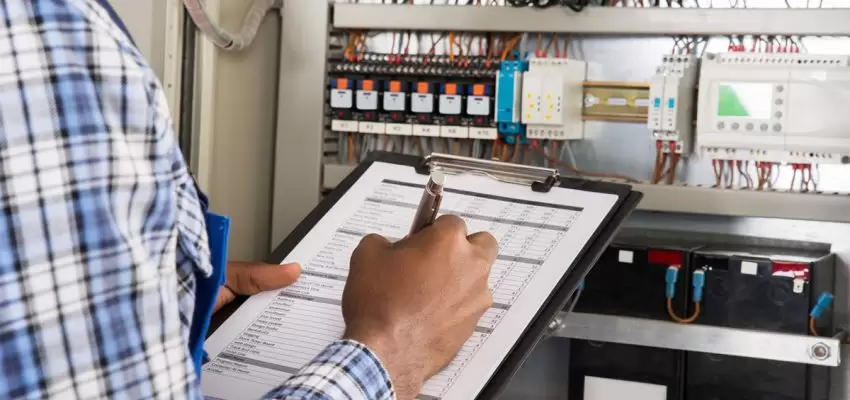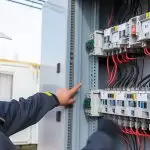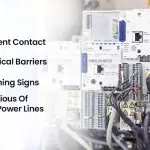Electricity is an essential utility in any home, but faulty electrical systems can present serious safety and fire risks. Many homeowners underestimate the danger of outdated wiring, overloads, improper installations, and other electrical deficiencies. If you experience any of these 10 warning signs, it’s crucial to call a licensed electrician for a full home electrical inspection and repairs before major issues arise.
Post your Requirement
| Term |
Definition |
| Electrical Contractor | An individual or company specializing in electrical work, including installation, maintenance, repair, and inspection of electrical systems, wiring, fixtures, appliances, and related components. |
| Electrical Contractor Near Me | An electrical contractor located near the person searching for their services, is often identified using location-based online directories, search engines, or mobile applications. |
| Electrical Contractor for Home | An electrical contractor specifically catering to residential clients, offering services tailored to the needs of homeowners such as electrical installations, repairs, upgrades, and safety inspections. |
Here we have listed out the 10 signs that indicate if your home needs an electrical inspection or not:
1. Frequent Circuit Breaker Trips:
Circuit breakers are also known as the first line of defense against any kind of electrical overload. But frequent flipping of switches or tripped breakers that won’t reset indicate your home’s electrical system is overloaded and struggling to meet demand. This strains all the wiring, breakers, and components, eventually leading to failure if left unchecked.
2. Flickering or Dimming Lights:
Lights that pulse brighter and darker or struggle to illuminate fully can signify multiple wiring problems from loose connections to inadequate power supply to the fixtures. These seemingly harmless symptoms could permit fire-causing heat buildup behind walls. Determine the cause through inspection before your lighting electrical becomes hazardous.
3. Buzzing Sounds from Outlets or Switches:
Buzzing, crackling, or sizzling noises coming from outlets or switches are major red flags. Arcing and sparks within wall boxes put your home at serious risk when electrical components or wires heat up and degrade. Listen and locate any audible electrical concerns for immediate diagnosis.
4. Warm Electrical Outlets:
Plugging cords into noticeably warm outlets indicates potential loose wiring that creates friction and heat when current passes through. Left unrepaired, warm plugs can lead to meltdowns that ignite fires within walls and endanger occupants.
5. Odd Electrical Smells:
Take note of any burning plastic odors or other unusual smells originating near outlets, appliances, or junction boxes. Electrical components and wiring give off distinct scents when overheating or short-circuiting. Trace odd smells quickly back to the electrical culprit before catastrophic meltdowns occur.
6. Discolored Outlets:
Wall outlets and switches that appear brown, warped, or discolored suggest past overheating issues, moisture seepage, or corrosion. Even minor heat damage can degrade electrical components over time and present safety risks. Replacement may be needed.
7. Sparks from Outlets:
Seeing actual sparks or electrical arcing when plugging in appliances or operating switches demonstrates definitive loose connections or wire damage. Exposed contacts triggering sparks threaten to ignite surrounding materials. Such outlets require immediate electrical repair or replacement.
8. Odd Circuit Layouts:
Questionable DIY wiring jobs, improperly modified circuits, overcrowded junction boxes, and other sketchy electrical layouts should raise inspector concerns. Grandfathered systems may not meet modern safety codes either. Thorough reviews help determine overall electrical integrity.
9. Outdated Fuse Boxes:
Electrical panels with traditional fuses rather than modern circuit breakers often signify an aging system in need of a broader upgrade. Inspectors can advise if entire rewiring is warranted based on equipment age, capacity, and condition hazards posed by outdated fuse boxes.
10. Major Home Additions or Renovations:
Substantial renovations like room additions that require rewiring or taping into existing electrical can be trigger points for whole-house inspections. Even permitted work by licensed electricians should undergo safety reviews to catch any latent issues, overloads, or finish flaws invisible behind walls.
When to Call an Electrician
Noticing any of these warning signs in your home’s electrical system should prompt calling a certified home inspector, master electrician, or reputable electrical contractor for further analysis. Only qualified electricians have the proper training, testing equipment, and know-how to conduct thorough electrical safety inspections capable of detecting fire and shock risks. They can diagnose issues, provide upgrade recommendations, rewire buildings to code, or fix problems.
What Does a Home Electrical Inspection Mean?
Typical electrical inspections involve testing all systems and components for proper operation and safety. Exact procedures performed depend on inspectors’ protocols, but common checks include:
- Evaluating electrical panels, fuses, and circuit breakers,
- Testing outlets and light fixtures with outlet testers.
- Checking all wiring for damage and meeting code.
- Confirming grounding and bonding for shock protection.
- Detector for hot spots in junction boxes or wires.
- Assessing amperage and voltage levels on circuits.
- Verifying the electrical outlets in bathrooms, kitchens, etc.
- Inspecting hardwired smoke and CO detectors.
Inspectors investigate the full breadth of electrical equipment, wiring, and safety devices throughout the home. They ascertain if systems can sustain household electrical loads and pinpoint any code violations, damage hazards, or shock/fire risks needing correction. Homeowners gain peace of mind knowing if electrical upgrades are advisable for safety and functionality.
Conclusion
Rather than ignore questionable electrical symptoms, take proactive steps by contacting independent home inspectors and/or licensed electricians. Electrical inspection reports outline improvement options and repairs warranted to provide reliable, safe power to your household. Investing in electrical corrections as needed prevents severe money losses and harm down the road.























Post A Comment